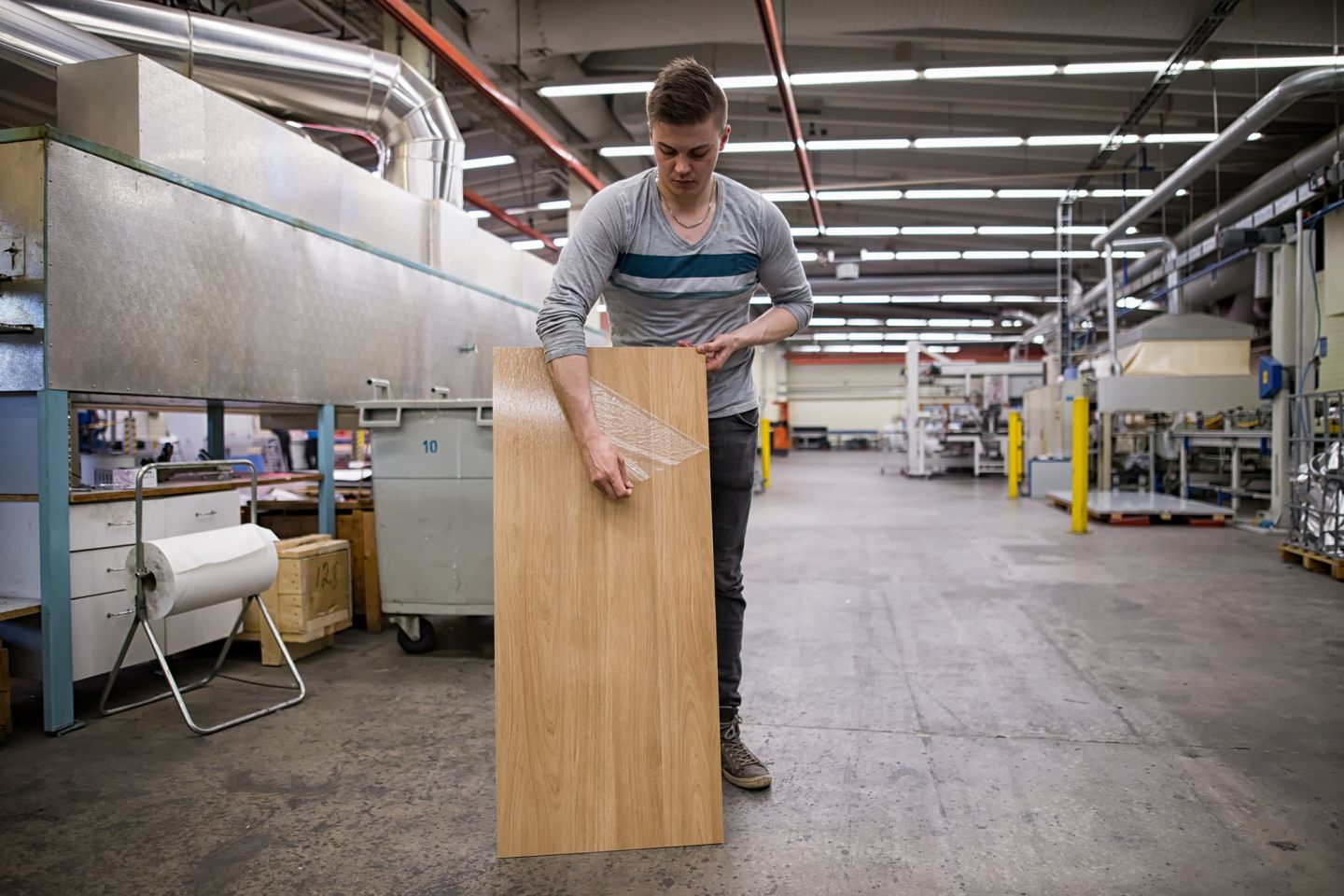Did you know that there is a company in Pello, Finland, that produces honeycomb panels for the interior design needs on luxury cruise ships?
And did you know that the same company makes the ice markings in Canadian ice rinks?
The name of this company is Potma.
Potma was founded in 1973. Its operation began with the manufacturing of grow containers for containerised seedlings, and the company’s current honeycomb structure also originates from these paper containers.
On 1 January 2003, Reijo Lassila joined the company. He took charge of Potma.
– The first item on the list was to decide on the core idea and know-how for the company. Doing a bit of this and a bit of that is not sustainable, and instead you must focus everything on your strengths, Lassila says.
The core know-how was found in honeycomb structures made of aluminium. The aluminium honeycomb structure is self-supporting and rigid, yet lightweight. In addition, aluminium is a recyclable material that can be re-melted.
– Aluminium honeycomb is perfectly suitable for mobile elements with weight restrictions that call for lightweight yet durable structures, Lassila explains.
The company offered the product to shipyards, but that required investments.
– In 2005, we made investments nearly twice the size of our turnover. We had to. This turned out to be the right choice and it saved the company, says Lassila.
An export company and a family business
Currently, 30% of Potma’s production goes directly to exports, the rest indirectly. Honeycomb structures and multilayer laminates are used in ships, oil rigs, lifts, clean rooms and rail vehicles as interior structures.
– Luxury cruisers form our main market at the moment, and these are built at Turku’s shipyard, among other places. In addition to Turku, onshore shipbuilding takes place in Germany, Japan and France, Lassila says.
In 2008, Reijo and Kirsti Lassila bought Potma. Today, Reijo owns 85% of the company, Kirsti 10% and their children 5%. The company is currently undergoing a generational change, as Reijo’s sons Matti and Antti Lassila are assuming a larger role in running the business. You could say that being an entrepreneur runs in this family.
The men have backgrounds in engineering but enjoy spending time in nature. Antti Lassila graduated as a mechanical engineer in 2010 and Matti Lassila in 2015. Before moving to Pello, Matti had plans of living in Southern Finland and seeing what life was like there.
– I thought to myself, why would that boy want to go to Helsinki when he cannot even do many of his hobbies there, Reijo smiles.
Pello is as good place to run a business as any
Nowadays, Potma employs ten people full-time and one as a temporary help. At the moment, the company’s annual production quantity is roughly 60–65,000 m2 and turnover 2.5–3.0 million euros.
– Potma’s competitive edge is that it is able to respond to its customers’ needs. Quality, delivery times and adaptability through structural thicknesses are important, as is making sure that the product transportation works and the supply remains constant, Lassila says.
All of Potma’s operations are run under the same roof in Pello, and the company does everything itself, from product development to finished articles. The raw material comes from countries like Norway, Germany, Finland and Italy.
– Pello offers the same preconditions for companies to function as any other place. The Tornionjoki riverside has always been an international region and an active area of commerce throughout its history, Lassila explains.
Potma was nominated as the top company in Lapland in 2016, and the continuous investments and new innovations bode well for the company’s future. The expansion of the product family with the laminate line is currently being launched.
Potma wants to focus on the product development process and keep it customer-oriented.
– We listen to our customers and always try to respond to their wishes. Commerce is about finding solutions to the customers’ problems, and all deals are always made in person. We must go out there and open our mouths to find customers. No one is going to come fetch us from home, says Lassila.



